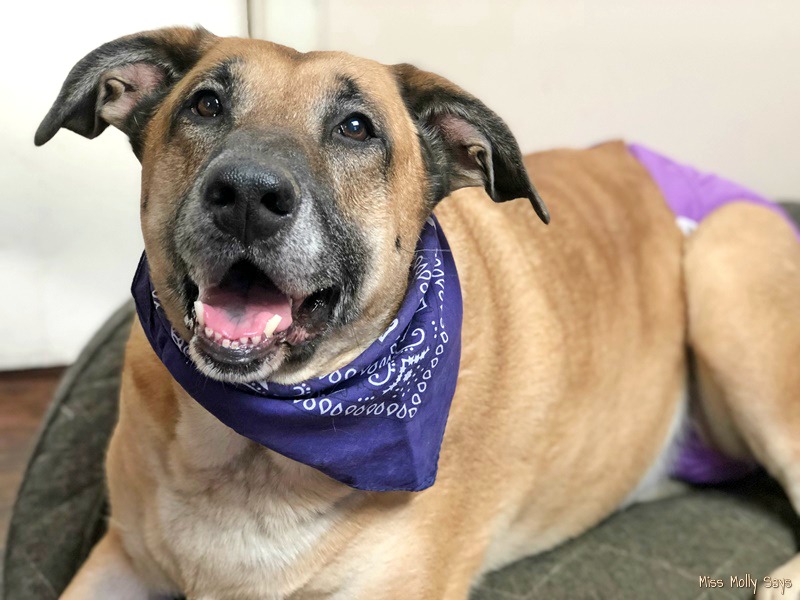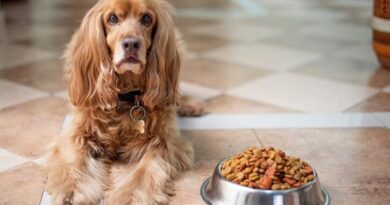
Large Dog Nutrition: The Danger Of Overfeeding Large Breed Of Dogs
Our pets are a part of our family and deserve good nutrition to stay active. As a pet owner, it is one of our responsibilities to make sure that our pets will grow up healthy and active. Keeping our pets healthy will also help to avoid medical conditions during their old years. This is especially true for larger dog breeds who will need more nutrition to keep their big bodies healthy. 
There are a lot of large dog breeds in the world with different personalities and needs. Most common examples are Alaskan Malamutes, Akitas, Boxers, Dalmatians, Dobermans, Great Danes, German Shepherds, Boerboels, and Golden Retrievers. Care for larger breeds are also different depending on age. Puppies will have different nutritional requirements because of the rapid and continual growth.
When it comes to dog nutrition, food is one of the most important focuses. There is no universal dog food because the nutritional need of each dog is different. You can also cook your dog custom food instead of giving dog food formulas. Giving supplements for large dogs is better than giving them more food, and there’s a good reason for that.
Nutritional Needs Of Large Breed Dogs
Like any other dog breed, it is important for large breed dogs to grow up at a proper rate by their age. This is even more critical for them because their bodies are more complicated than other breed types. The growth rate should be regulated because if a puppy grows too quickly or too slowly, its body will not be able to keep up with its activities in the future.
Large puppies grow quickly and keep growing longer than smaller dogs. Because of the accelerated growth, the body of the puppy will be sensitive to its diet. Any change can result in imbalances, excess or deficiencies in nutrients, and other bad things that can affect your puppy’s health. A bigger body doesn’t mean that large breeds need to eat a lot of food, as this is not good for their health (they still need a larger portion of food than other breeds). For large breed dogs, the diet should have a lower fat amount, lower calcium, phosphorus, and vitamin D.
You might be asking why limit things that enable growth and development of the bone such as calcium and vitamin D. Should bigger dogs need a bigger portion of food to be stronger and be healthy? This boils down to the medical conditions common to the large dogs.
Growth And Weight Problems
Because of their large bodies, excessive growth is not good for large dog breeds. Excessive growth is linked to Developmental Orthopedic Disease or DOD. Although a fatter dog can look cuter or more adorable, medical conditions associated with DOD is not cute. These conditions include hypertrophic osteodystrophy, osteochondrosis, hip and elbow Dysplasia, retained ulnar cartilage core, and panosteitis. Not to mention that obesity is also a bad thing for a large breed as it affects the heart and the movement of the dog.
How Much Food Should You Give To Your Dog?
Free feeding is not recommended because it can cause overfeeding. Instead of feeding three times a day with heavy meals, feed your dogs with smaller portions throughout the day. The amount of food that a dog should take each meal should be based on the dog’s appropriate weight range. Instead of feeding more food, giving supplements are more favored.
Supplements can give the proper nutrients that large breed of dogs need without overfeeding. Overfeeding can cause DOD and obesity. Supplements will also be based on the dog’s age and weight. The right amount for a puppy will be different for senior dogs. Talking to a vet on how much food and supplements to give to your dog is the best way to know how much you’ll need to feed your dog.
When choosing the food for your dog, there are things you should consider based on the labeling. Avoid food that is listed with oils and fats as it is not good for large dogs. Ignore phrases that are there for marketing purposes only (such as “all natural” and “human-grade ingredients”). Also, make sure that your dog food is both “complete and balanced” and “clinically tried and tested”. Complete and balanced dog food will help in preventing deficiencies while the tried and tested ones have an assurance that the product is safe and healthy.










My son has a German shepherd and is very careful about her diet and what he feeds her exactly so she doesn’t get over weight.